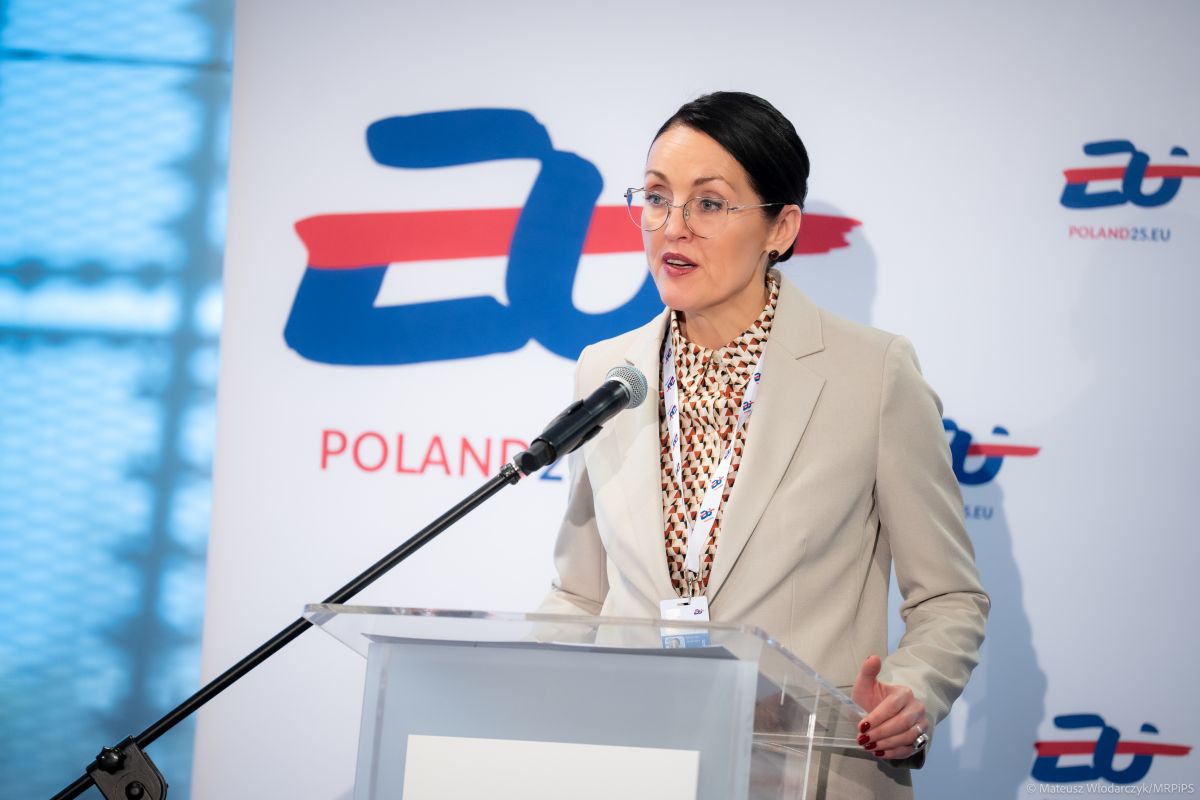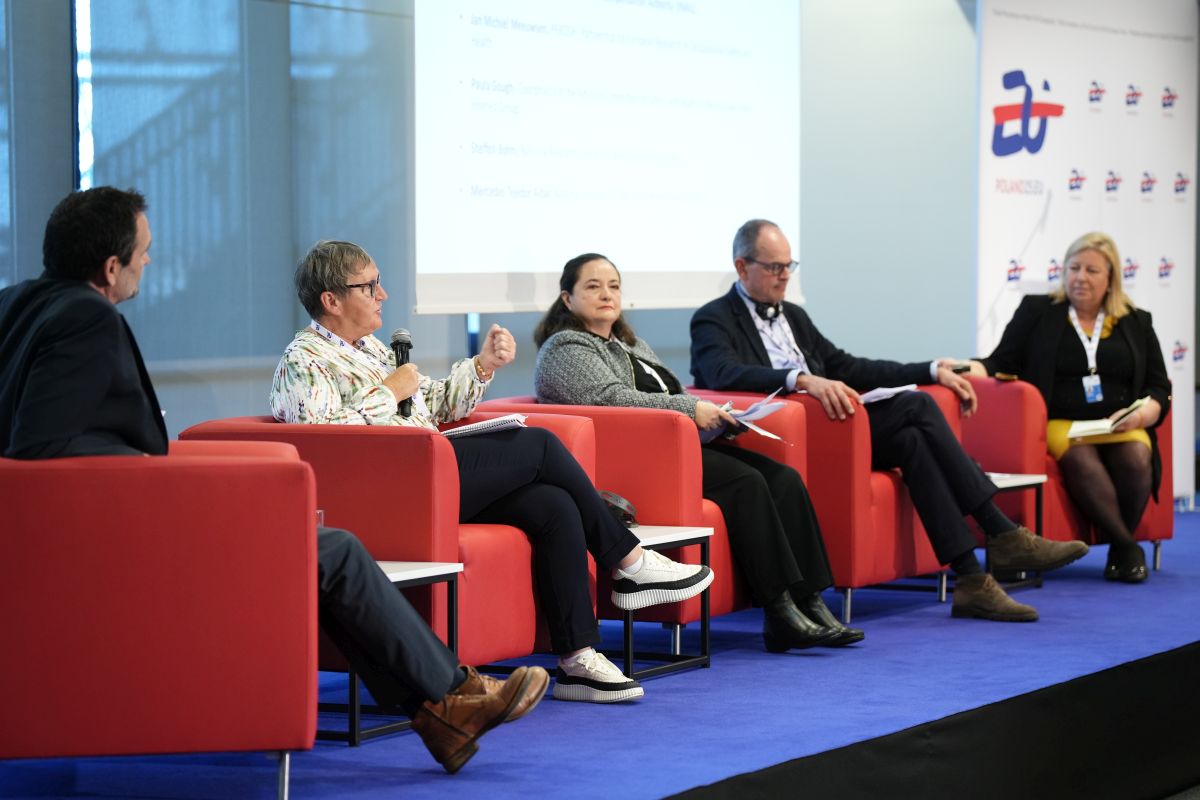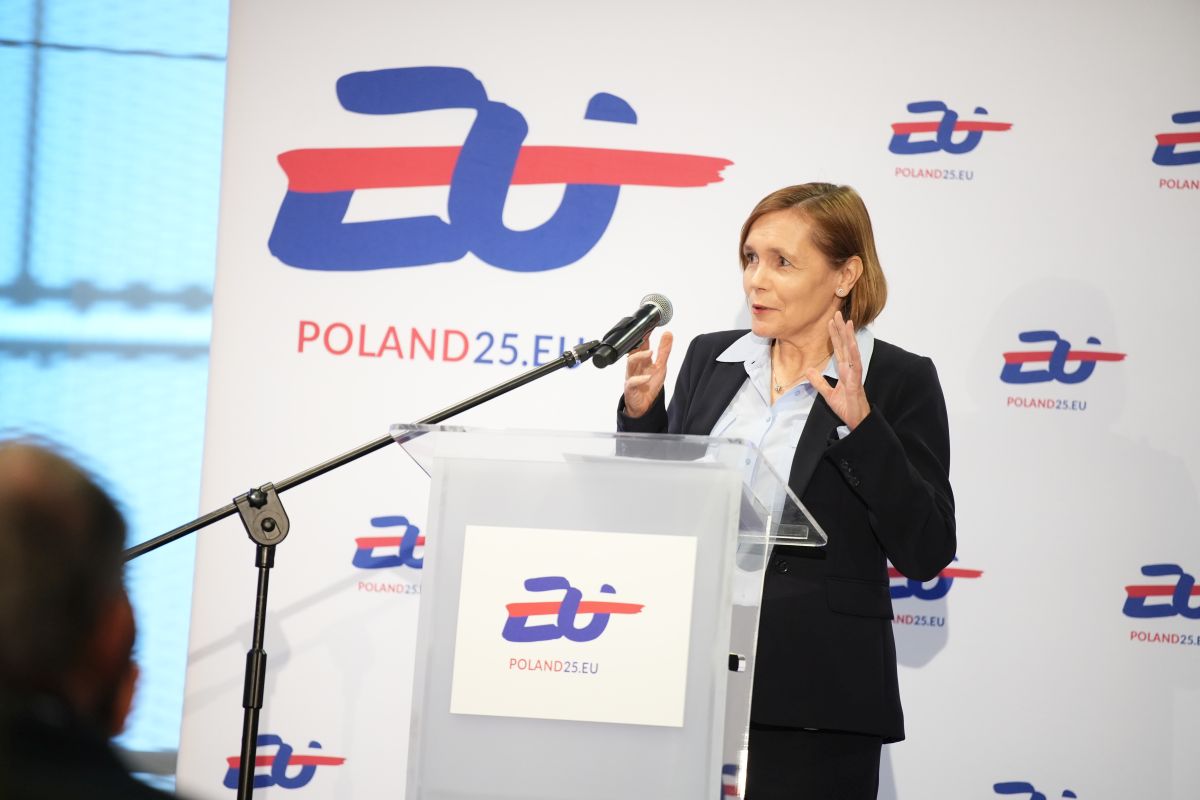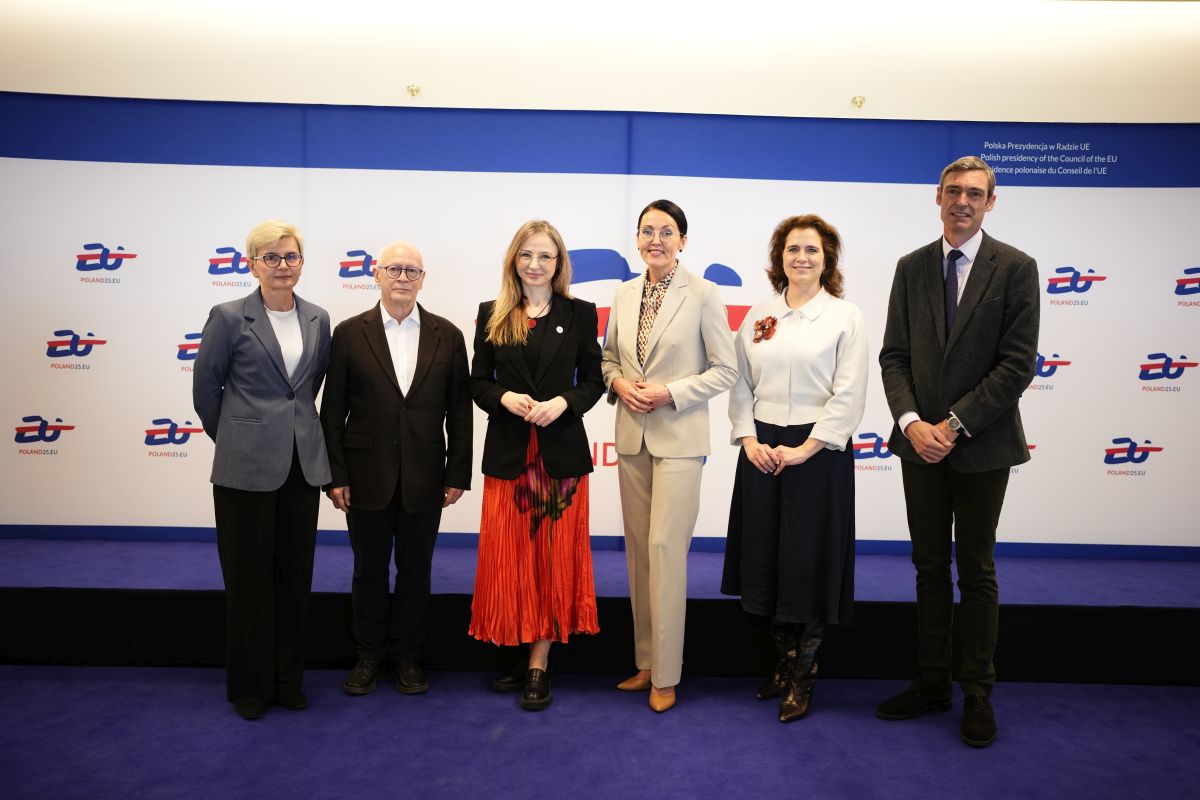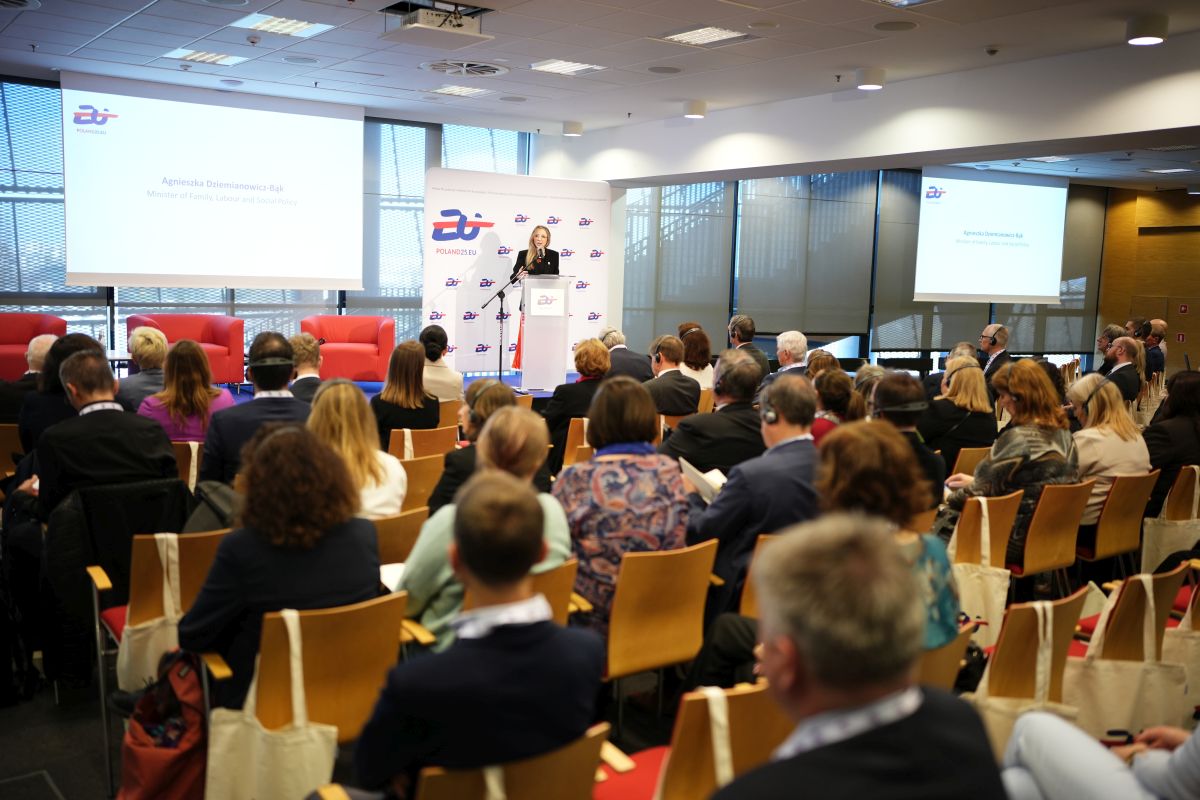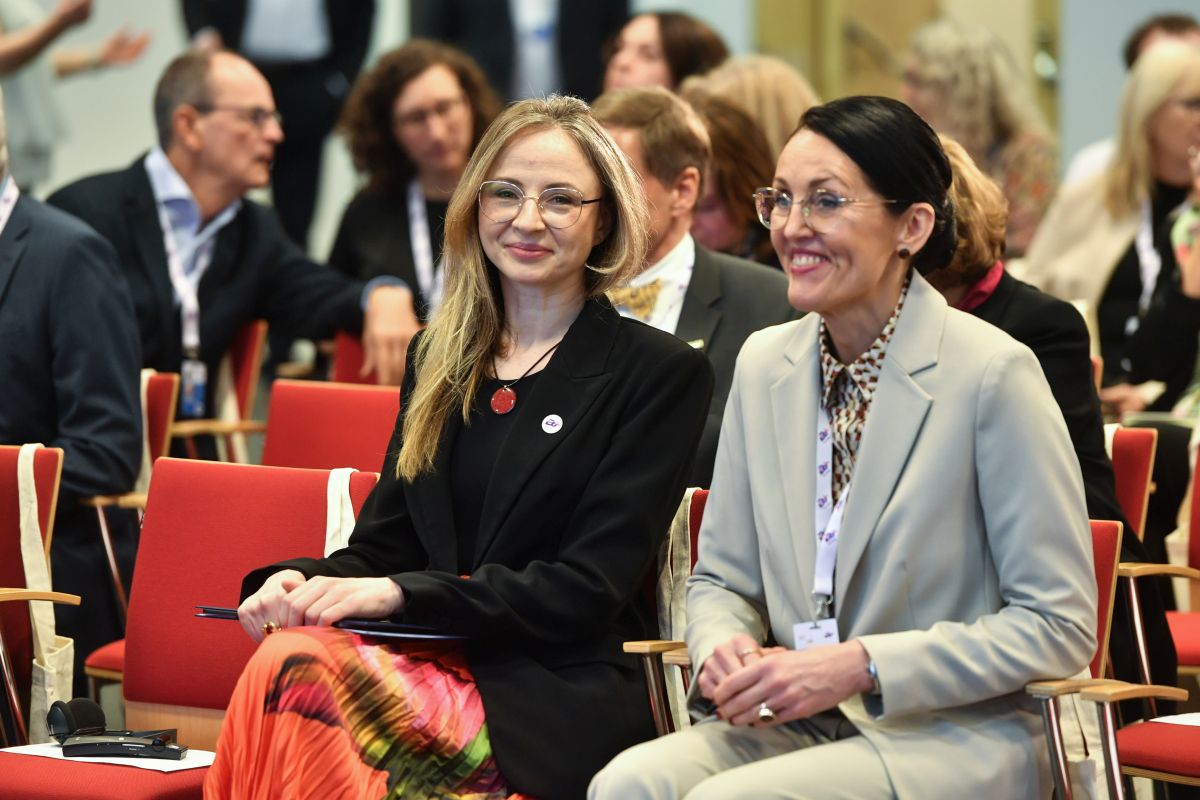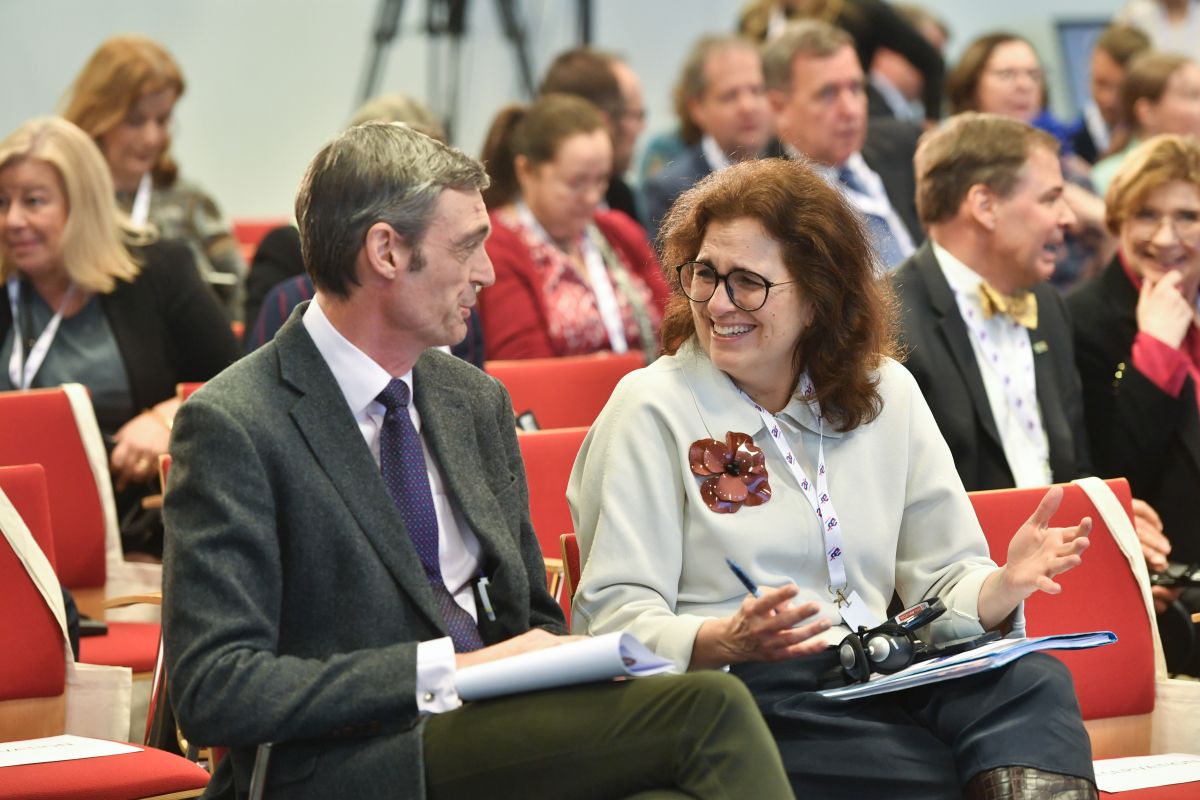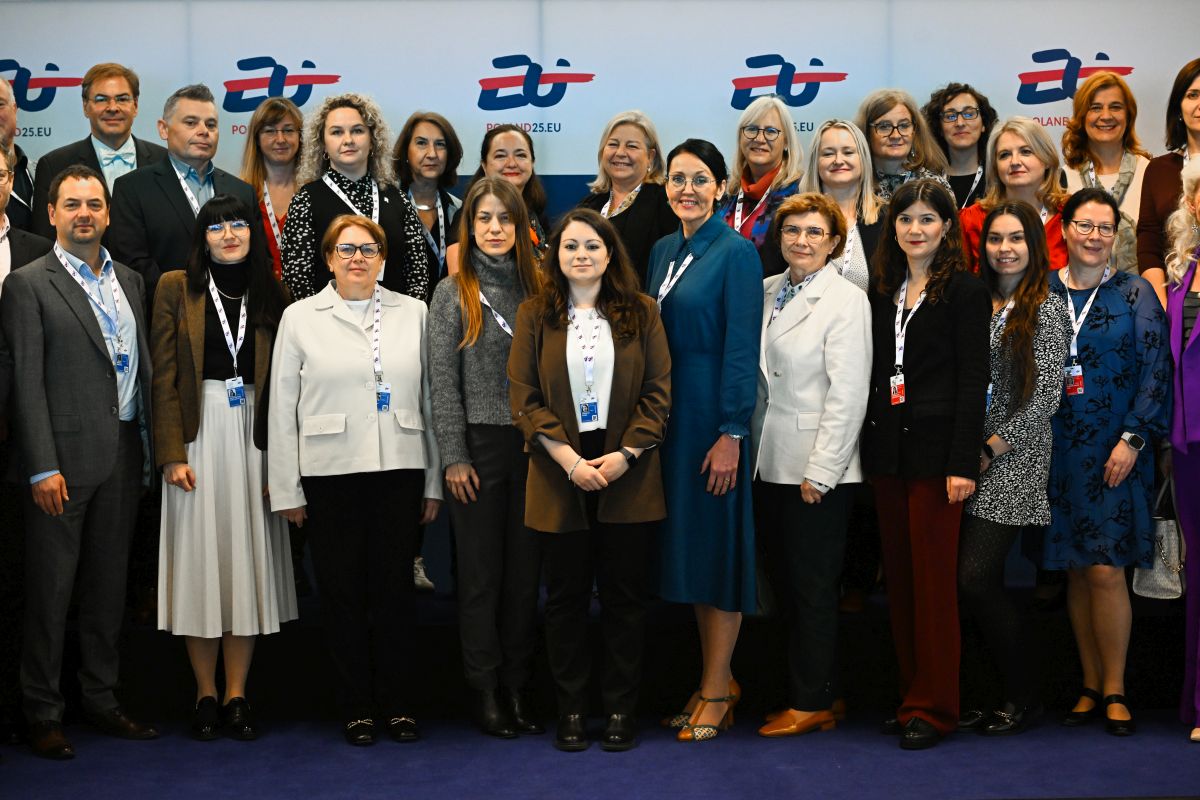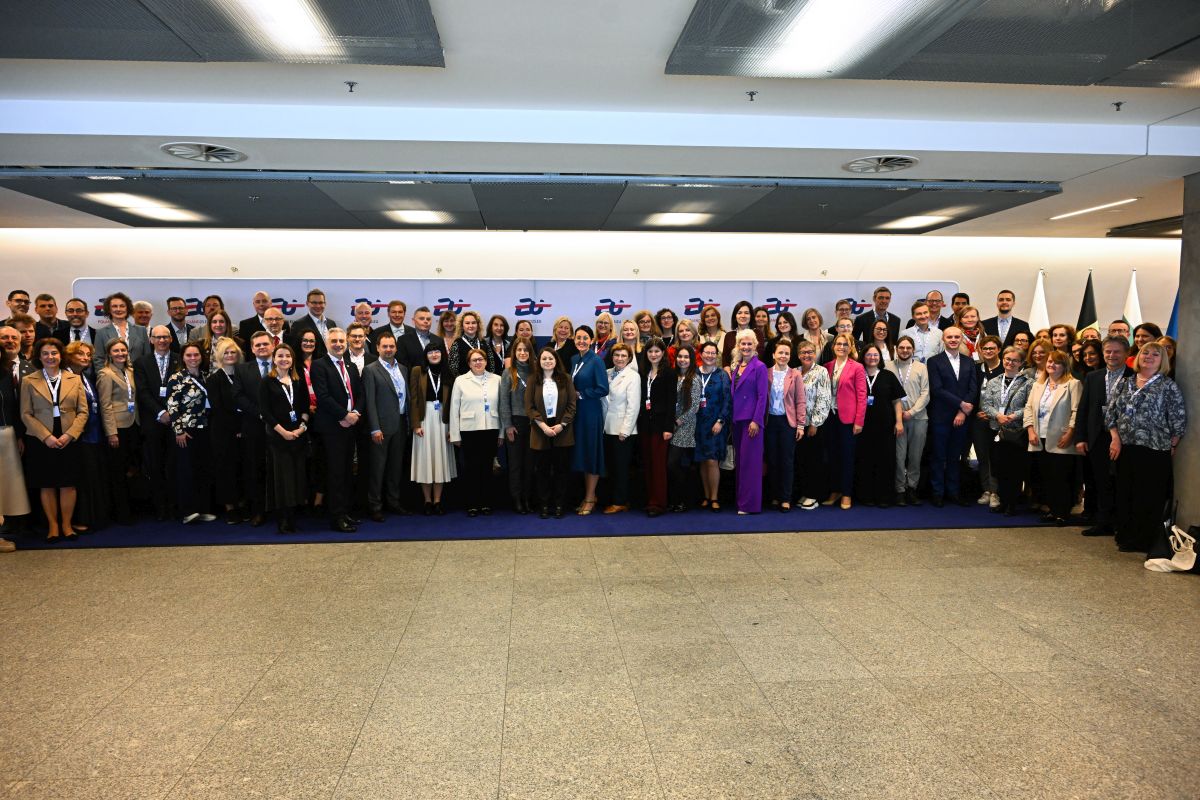Conference “Building the Digital Future in Occupational Safety and Health” – Polish Presidency of the Council of the EU
3–4 April 2025, Warsaw
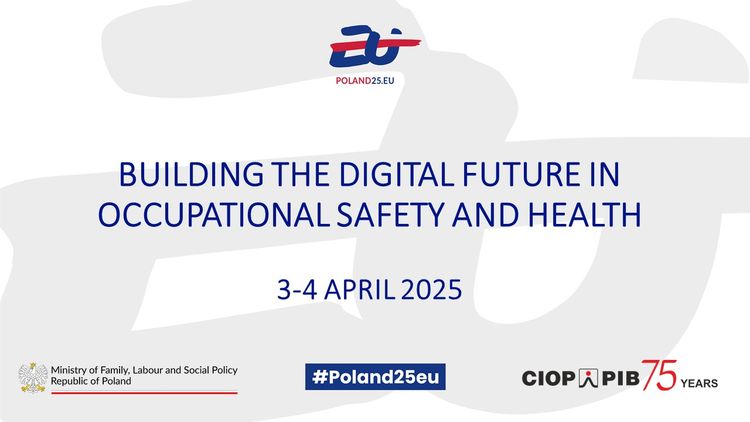
Conference “Building the Digital Future in Occupational Safety and Health” – Polish Presidency of the Council of the EU
3–4 April 2025, Warsaw
The conference on "Building the Digital Future in Occupational Safety and Health" took place in Warsaw on 3–4 April 2025. The event was organised by the Ministry of Family, Labour and Social Policy and the Central Institute for Labour Protection - National Research Institute, as part of the Polish Presidency of the Council of the European Union. The conference brought together representatives from EU institutions, public administration, academia, and employer and employee organizations from across Europe.
The central theme was the digital transformation and its impact on occupational safety and health. Participants engaged in discussions on emerging technologies, artificial intelligence, ethical data governance, the future of labour law, and the importance of social dialogue.
The conference marked an important step toward building a common European response to the challenges of a changing world of work – with a focus on the health, safety, and dignity of every worker.
The conference featured seven sessions covering:
- Ethical and Social Implications of the Digital Future
- The Digital Future of OSH from the Scientific Research Perspective
- The Pros and Cons of Digital Transformation
- The Impact of Digital Transformation on the Labour Market
- The Potential of the Silver Economy
- Occupational Safety and Health Management and New Forms of Work
- Building the Digital Future of OSH: From Today’s Learnings to Tomorrow’s Solutions
Key Takeaways:
Digitalisation in today’s world faces numerous challenges that require not only technological innovation but also an ethical, inclusive, and secure approach to development. The key takeaways regarding the future of work and safety in the digital age are as follows:
- Ethics, Inclusivity, and Safety in Digitalisation: Digitalisation cannot come at the expense of human values. This process must be built on strong legal frameworks that ensure adherence to ethical standards and protection against undesirable consequences, such as privacy breaches. The involvement of all stakeholders — governments, employers, NGOs, and civil society — is essential in creating technological solutions that will serve the good of everyone.
- The Role of Science and Research: The use of new technologies such as artificial intelligence and immersive training in the context of workplace safety is becoming increasingly popular. International cooperation, such as the PEROSH network, enables the exchange of knowledge and experiences, allowing us to better understand how modern technologies can improve work conditions, both physically and mentally.
- New Risks: The rapid development of technology is associated with the emergence of new, complex risks. Algorithms, despite their potential, can introduce bias, and automation may lead to health issues such as mental overload. It is crucial to develop new solutions to manage these risks and minimise their impact.
- Changes in the Labour Market: Digitalisation, including remote work, automation, and the growing importance of platform work, introduces new employment models. For these changes to be fair, social systems and workers' protections must be adapted to the new reality, ensuring inclusivity and justice in access to work and wages.
- Support for Older Workers: Given the ageing population, it is essential to provide support for older workers in adapting to digital realities. Integrating the so-called "silver economy" and adapting technology and work processes to their needs is crucial for maintaining their professional activity and social integration.
- Changes in Traditional Occupational Health and Safety (OHS) Models: Changes in the workplace, such as remote work, and decisions made by algorithms, require a revision of traditional OHS models. New challenges related to responsibility, transparency in decision-making, and ensuring the well-being of employees arise, especially in the context of remote work organisation.
- Shared Responsibility for the Digital Future: Building the digital future is a task that requires the collaboration of all social and political actors. Only a shared responsibility among governments, employers, trade unions, scientists, and citizens will create a fair, safe, and ethical work environment in the age of digitalisation.
The conference reaffirmed that the digital future of work can be smart, safe, and fair – provided it is built with a human-centred approach. The active involvement of all stakeholders – from policymakers to workers – is essential to ensure that technological advancements are implemented with full respect for human rights and social values. The recommendations developed during the event provide a solid foundation for further action at both national and EU level, aimed at shaping a modern and responsible world of work.
Programme of the event 
Official event website:
https://polish-presidency.consilium.europa.eu/en/events/building-a-digital-future-in-the-context-of-occupational-safety-and-health/
The conference recording is available on the Central Institute for Labour Protection YouTube channel:
https://www.youtube.com/results?search_query=centralny+instytut+ochrony+pracy

